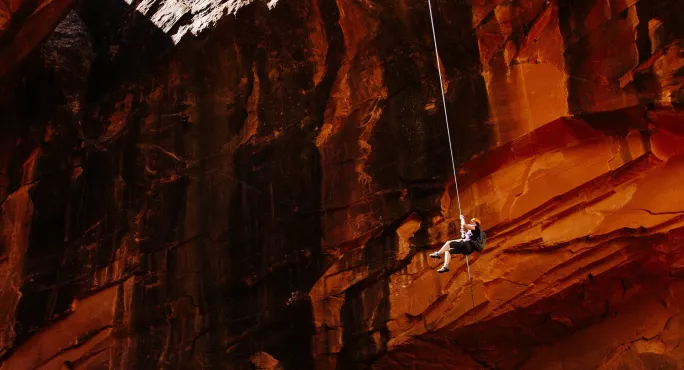Accompanying a group of pupils on an outdoor activities trip is generally regarded as one of the few perks in teaching. Spending a - hopefully - dry day away from the classroom to see the pupils in a different environment while being able to step back and allow the outdoor instructor to be in control of the group lets the teacher become a benevolent encourager and jacket-holder, rather than a figure of authority.
However, it is at the very moment of repose when the teaching responsibility buck has been passed that the new facilitator turns against us. Up until this point, the trainer might seem to be a friendly, affable character as they hand out the safety kit and explain the activity. Then they innocently suggest: “Maybe sir would like to give it a go first?”
Social skills: ‘It’s time for schools to embrace outdoor learning’
Attainment: ‘Outdoor education prepares pupils for GCSEs’
Challenge: Why are we so reluctant to take learning into the outdoors?
This seemingly innocuous request is loaded with meaning, the word “sir” laced with condescension. You see, the group leader wants to cast you in a new role, not as the person in charge of the packed lunches and counting heads on and off the bus, but “the fall guy”. And as the expectant young faces turn to see how you react, options are limited. It’s hard to feign injury on the spot and a point-blank refusal to step off the cliff face means losing face in front of a class with long memories and hopeful of a good anecdote to pass round back at school.
The great outdoors?
So I have been the first to ride a mountain bike around a hazardous pump track, edged across treacherously slippy stones above deep black pools of water on a gorge walk and, most dangerously of all, shimmied across a single strand wire bridge above a river in full torrent to collect the safety harness on the other bank.
As a teaching method, it’s brilliant. It lets the pupils see someone probably even more anxious than they are trying the new activity, giving them the knowledge that it is OK to be nervous. Best of all, if the teacher slips into the water, comes off the bike or just makes a fool of themselves, the pupils will see that you can crash and survive, and it gives them a good laugh. Finally, as the instructor will have just met the class, it gives him or her a connection with the pupils against a common foe - you!
I think there could there be an element of revenge involved on part of the outdoor instructor. It allows them to get back at all of the teachers who made their school days a misery, while still doing their job. I wonder how other groups of professionals lowly regarded in society are treated on their away days. A group of MPs might be best to avoid abseiling, rock climbing or any other outdoor activities which combine height and ropes on their next bonding session.
I just wish the instructor would realise the reason why us non-PE teachers end up in a generally sedentary job is because we are the bookish types not suited to the outdoors - that’s why we got into teaching in the first place. So if any outdoor instructors are reading this, please go easy on us this summer term.
Gordon Cairns is a teacher of English in Scotland




